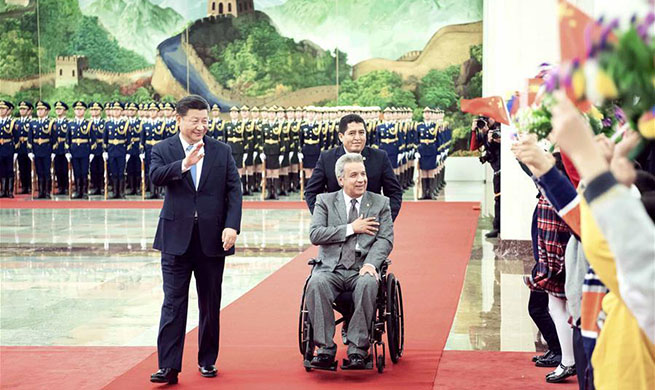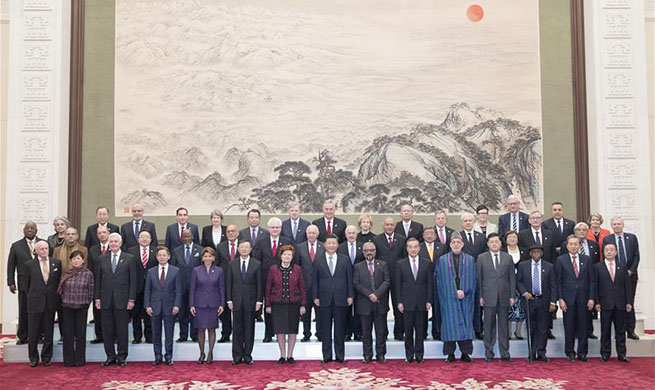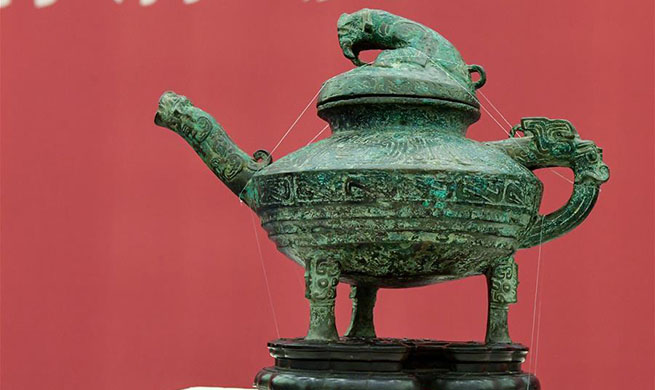by Xinhua writers Gu Zhenqiu, Gui Tao
LONDON, Dec. 12 (Xinhua) -- British Prime Minister Theresa May on Wednesday won by a large margin a confidence vote, but the victory will not be likely to help her in getting her Brexit deal ratified by House of Commons.
The vote was the first of its kind in nearly four decades in the country.
With a majority of Tory MPs backing her in the vote, May survived both as leader of the Conservative Party and the prime minister, but here comes a question: how can she bring her Brexit deal through the parliament?
Under Conservative Party rules, May, after winning the secret ballot, can stay undisturbed and unchallenged for another 12 months. That takes one uncertainty off the table.
However, she would be weaker -- lonelier -- and with less authority to drive her Brexit compromise through parliament.
The vote of 200 to 117 mirrors a cold reality that there is still a large group of MPs in her party have no confidence in the prime minister.
The major hurdle stands in the way to the parliamentary approval is the issue of the so-called backstop, or the border on the Island of Ireland, which has been a sticking point in the painful Britain-EU negotiations on how Britain will leave the regional bloc in March next year.
The price of her victory is her promise to give up running in the 2022 elections, which was in her announced plan early this year.
The prime minister foiled the attempt by her fellow Tory MPs to unseat her, but their concern on the backstop is not yet properly addressed at this moment. This issue was described by May as a "widespread and deep concern" among critical MPs over the Withdrawal Agreement reached last month by London and Brussels.
The pressure on the prime minister over this hard problem has not been reduced in spite of her Wednesday victory.
Under intense pressure, the prime minister promised to talk to European leaders in order to seek an "assurance" that the backstop arrangement is temporary and Britain can withdraw unilaterally.
May cancelled a trip to Ireland on Wednesday for talks with Irish Prime Minister Leo Varadkar so she could remain at Westminster and appeal to her MPs for stronger support in a speech just hours before the start of the closed vote.
However, the room for May's diplomatic maneuver is very limited with European leaders ruling out renegotiations on the Brexit deal, a result of 17 months of painful talks.
Echoing the EU leaders' statements in Brussels, German Chancellor Angela Merkel said after her meeting with the visiting British prime minister in Berlin that she has "no intention to change the exit agreement."
A key part of the Brexit negotiations was about the border that separates Northern Ireland and the Republic of Ireland. The agreement on the Irish border was contained in the Britain-EU Brexit deal.
Both London and Brussels committed to avoiding the return of a "hard border" -- physical checks or infrastructure -- after Britain leaves the EU in March 2019.
The vote was triggered by angry Tory MPs who blamed the prime minister for a bad deal although May insisted her Brexit deal is "in the best national interest" and "delivers the referendum" in 2016.
The vote came just two days after May put off the crucial parliamentary vote on the Brexit deal after she acknowledged that that "the deal would be rejected by a significant margin."
The authority of May's government was weakened over Brexit and the parliament got bigger say on the final Brexit plan after the parliament found her government in contempt of the legislature. Her government was later forced to publish full text of legal advice on the country's departure from the European Union.
After the victory, May said that she will "go on with the job of delivering Brexit" and "listen carefully" to those who voted against her.













